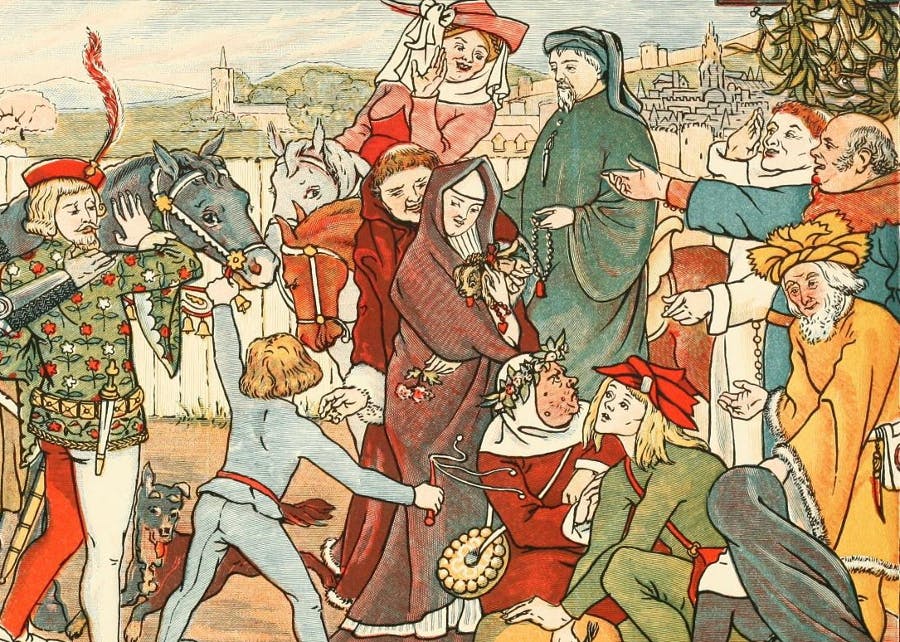
Moment of Truth Approaches for Trump’s Supreme Court Appeal of $5 Million ‘Sexual Abuse’ and ‘Defamation’ Verdict in E. Jean Carroll Case
By A.R. HOFFMAN
|In an era when French and Latin were the languages officially inscribed for poetic expression, the English of The Canterbury Tales is the English of an emerging vernacular literature. Chaucer is, as he is so often described, the father of English literature.

Already have a subscription? Sign in to continue reading

By A.R. HOFFMAN
|
By THE NEW YORK SUN
|
$0.01/day for 60 days
Cancel anytime
By continuing you agree to our Privacy Policy and Terms of Service.
By DANIEL EDWARD ROSEN